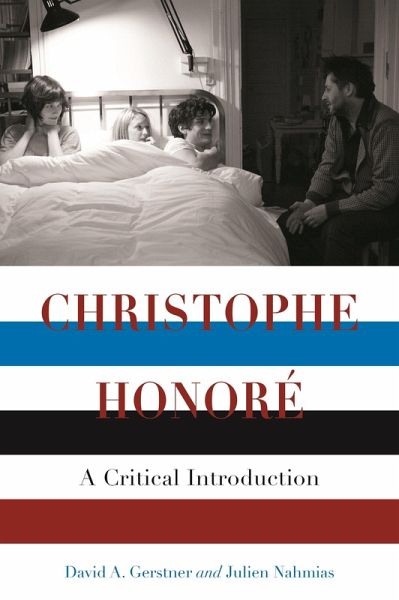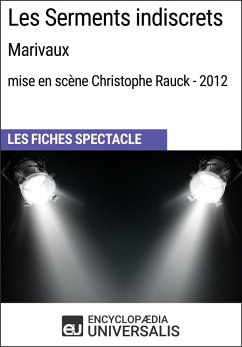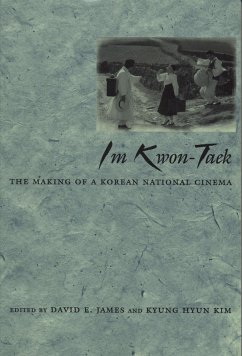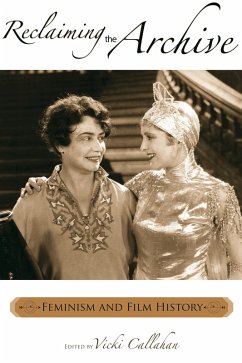
Christophe Honore (eBook, ePUB)

PAYBACK Punkte
13 °P sammeln!
French filmmaker Christophe Honore challenges audiences with complex cinematic form, intricate narrative structures, and aesthetically dynamic filmmaking. But the limited release of his films outside of Europe has left him largely unknown to U.S. audiences. In Christophe Honore: A Critical Introduction, authors David A. Gerstner and Julien Nahmias invite English-speaking scholars and cineastes to explore Honore's three most recognized films, Dans Paris (2006), Les Chansons d'amour (2007), and La Belle personne (2008)-"e;the trilogy."e; Gerstner and Nahmias analyze Honore's filmmaking a...
French filmmaker Christophe Honore challenges audiences with complex cinematic form, intricate narrative structures, and aesthetically dynamic filmmaking. But the limited release of his films outside of Europe has left him largely unknown to U.S. audiences. In Christophe Honore: A Critical Introduction, authors David A. Gerstner and Julien Nahmias invite English-speaking scholars and cineastes to explore Honore's three most recognized films, Dans Paris (2006), Les Chansons d'amour (2007), and La Belle personne (2008)-"e;the trilogy."e; Gerstner and Nahmias analyze Honore's filmmaking as the work of a queer auteur whose cinematic engagement with questions of family, death, and sexual desire represent new ground for queer theory. Considering each of the trilogy films in turn, the authors take a close look at Honors cinematic technique and how it engages with France's contemporary cultural landscape. With careful attention to the complexity of Honors work, they consider critically contested issues such as the filmmaker's cinematic strategies for addressing AIDS, the depth of his LGBTQ politics, his representations of death and sexual desire, and the connections between his films and the New Wave. Anchored by a comprehensive interview with the director, the authors incorporate classical and contemporary film theories to offer a range of cinematic interventions for thinking queerly about the noted film author. Christophe Honor A Critical Introduction reconceptualizes the relationship between film theory and queer theory by moving beyond predominant literary and linguistic models, focusing instead on cinematic technique. Students and teachers of queer film will appreciate this thought-provoking volume.
Dieser Download kann aus rechtlichen Gründen nur mit Rechnungsadresse in A, B, BG, CY, CZ, D, DK, EW, E, FIN, F, GR, HR, H, IRL, I, LT, L, LR, M, NL, PL, P, R, S, SLO, SK ausgeliefert werden.













